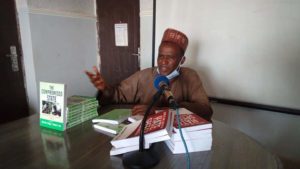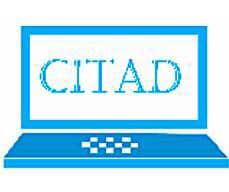REPORT OF A ROUNDTABLE DISCUSSION ON CIRCULAR ECONOMY IN CELEBRATION OF 2021 WORLD ENVIRONMENTAL DAY HELD AT CITAD OFFICE, KANO
World Environment Day (WED) is celebrated annually on 5 June and is the United Nations‘ principal vehicle for encouraging awareness and action for the protection of the environment. First held in 1974, it has been a platform for raising awareness on environmental issue such as marine pollution, human overpopulation, global warming, sustainable consumption and wildlife crime. World Environment Day was established in 1972 by the United Nations at the Stockholm Conference on the Human Environment (June 5-16, 1972) that had resulted from discussions on the integration of human interactions and the environment. Two years later, in 1974 the first WED was held with the theme “Only One Earth”.Â
Also, as part of its efforts to help in safeguarding the environment the Centre for Information Technology and Development (CITAD has for many years been organizing different kind of activities ranging from public lectures, town hall meetings, road walks, twitter chats and radio programs in order to enlighten the public about the importance of keeping their environment safe and clean in order to protect it from disaster, erosion, pollution and rising global warming and also to warn them about the danger to polluting it. This year, like every other year the Centre organized a roundtable discussion with its Executive Director, Engineer Yunusa Zakari Ya’u as the discussant and Malam Aminu Aliyu of the Department of Economics, Bayero University, Kano as the moderator. The tittle of this year’s lecture was Circular Economy in the ICT Sector.Â
In his welcome remarks which served as the opening of the discussion, Engr. Ya’u focused his discussion about the importance of a circular economy and why Nigeria and Nigerians should adopt it in order to generate more jobs and avoid societal pollution. Part of the advantages of the circular economy as identified to Malam Ya’u are, the circular economy helps to improve resources’ performance and fight the volatility that climate change might bring to businesses. It has benefits that are operational as well as strategic and brings together a huge potential for value creation within the economical, business, environmental and societal spheres. However, during the discussion, Ya’u also lamented that over the years Nigeria has become a dumping ground of second hand ICT goods whether be it is electronics; refrigerators, televisions, radios, handsets, and also plastics waste which littered every corner of our environment. Which according him is not healthy for the country. Going further, Malam Ya’u said experts are looking at this in three dimensions: a. Environmental Hazard: which health experts considered as harmful to environment; b. Job Creation: in many instance the waste is generating a lot of jobs and new business opportunities to teeming employed people who are going round to pick those waste and sale it to recyclers and the third dimension that is the Development Partners who see environment as part of the sustainable development goal, these category of people see waste as challenge to creating a sustainable development environment. In concluding his remarks, Engineer Ya’u identified two major challenges of creating circular economy in the country as lack of infrastructures and awareness he also called on the authorities to ensure the speedy passage of favorable policies for recycling in the country.
While making contributions, some of the participants at the roundtable discussion believe that with proper awareness creation and favorable policies circular economy especially in the ICT sector will boost the country’s economy, save the environment and reduce waste pollution. Also another contributor highlighted that recycling of ICT waste in Nigeria which are normally done in either China, Europe or America will create millions of jobs to Nigerians if government pay more attention to it and ensure a favorable environment where it can be done here.
At the end of the discussion there were unanimous agreements that awareness creation and intensive advocacy to relevant agencies and engagements with government need to be intensified in other to preserve, sustain and save our environment.Â





